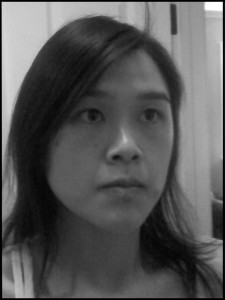Positions
Executive Director, Senior Scientist, and Professor
As Executive Director of RSI, I implement our research, educational and social initiatives. I lead by example to ensure that RSI fulfills its ambitious and important missions. Mine is a take no prisoners approach, since failure is acquiescence. Moreover, I am the co-founder of the modern incarnation of the Regenerative Sciences Institute in 2006, which transitioned RSI from a virtual to a de novo hybrid educational/research organization. RSI initiatives are the brainchildren of Dr. Mendelsohn and myself. We imagine how scientific research and technology development will change the world. Through our efforts, we have become cognizant of how science education and particularly scientific bureaucracy require major reformations to increase the frequency of breakthrough discoveries and inventions. Our evolving initiatives undergo continual revision using feedback from our scientific and social experiments. The Bio 2.0 initiative encapsulates our strategic solutions to these systemic, fundamental problems. Every day we make a concerted effort to ensure that our visionary goals coalesce and progress towards actualization.
Research
In the spring of 2004, I began my first project under the tutelage of Dr. Mendelsohn, “reprogramming terminally differentiated human fibroblasts by supertranscription factors”. After investing many years of work, we lost the race to Shinya Yamanaka in 2006 who named these reprogrammed cells, induced pluripotent stem cells (iPS). However, reprogramming cells to become iPS cells, was only the beginning. Using synthetic biology, a complex network of biological circuits can not only direct cell fate, but also create novel functions, as illustrated in our iGEM team projects. Another of my research interests is recapitulating adult regenerative capacity, similar to the neoblasts in Schmidtea mediterranea, in animals that poorly regenerate through engineering critical regeneration factors to augment native biocircuits. I am also interested in creating novel hybrid organisms that address the bioenergy crisis.
Biography
My unorthodox training in science, and the unique opportunities afforded to me, culminate in what Regenerative Sciences Institute embodies today. An invitation to Nobel laureate Sydney Brenner’s Molecular Sciences Institute in 2004, was my first dalliance with academic science. As an undergraduate student, I was well-informed that research lab politics, and the hierarchical prejudices towards new interns. I was well prepared for a research experience entailing: routine lab maintenance. However, my preconceived notions were truly in vain. In lieu of a traditional internship, my mentor, Dr. Andrew Mendelsohn, inquired of my personal scientific interests and granted me the freedom to pursue them. Without the confines of scientific didactism, I was at a loss. For example, my first response to what type of research I wished to pursue many years ago: I candidly answered – observing that my mentor (Andrew Mendelsohn) suffered from androalopecia – “hair regeneration”. In retrospect, that instance of self-compelled reflection, volitional undertaking, and the recognition of such, were forethoughts in my impetus for transforming RSI from a virtual organization that promoted next generation regeneration research, into a physical scientific research institute. After graduating in 2006, Dr. Mendelsohn and I, began what would transpire to be a multi-year endeavor, to build RSI from the ground up, starting with the people. Everything from the labs, educational programs, lab equipment, website,..etc, were made possible with the help of our students, friends, and family. Despite, the many difficulties, the journey for me has been priceless. De novo creation of a research institute that embodies our ideals, and continues to help shape the minds of our future, is in my opinion, the greatest form of reciprocity; it is a dream we both live.
Our student programs are designed to nurture the creativity of young minds. Through the programs, I try to instill a love of science in my students. I relive my childlike curiosity when designing projects, and I try to impart this, while they make their own journeys. Failure is a critical part of the scientific process, and how we re-evaluate things. I encourage my students to have the conviction to pursue their projects and learn from their failures. We should remember that apart of our age, we are all but students, and our understanding of the universe, is but in its infancy.
Education
BA, molecular and cell biology, UC Berkeley
Publications
- Mendelsohn AR, Lei JL, Chatterjee D. 2015. Epigenetic/Genetic Mismatch: Using Transdifferentiation as a Potential Cancer Therapy to Exploit the Cell Type Specificity of Cancer. Crit Rev Oncog. 2015 20(5-6):519-535.
- Mendelsohn AR, Larrick JW, Lei JL. 2017. Rejuvenation by Partial Reprogramming of the Epigenome. Rejuvenation Res. 2017 Apr;20(2):146-150






